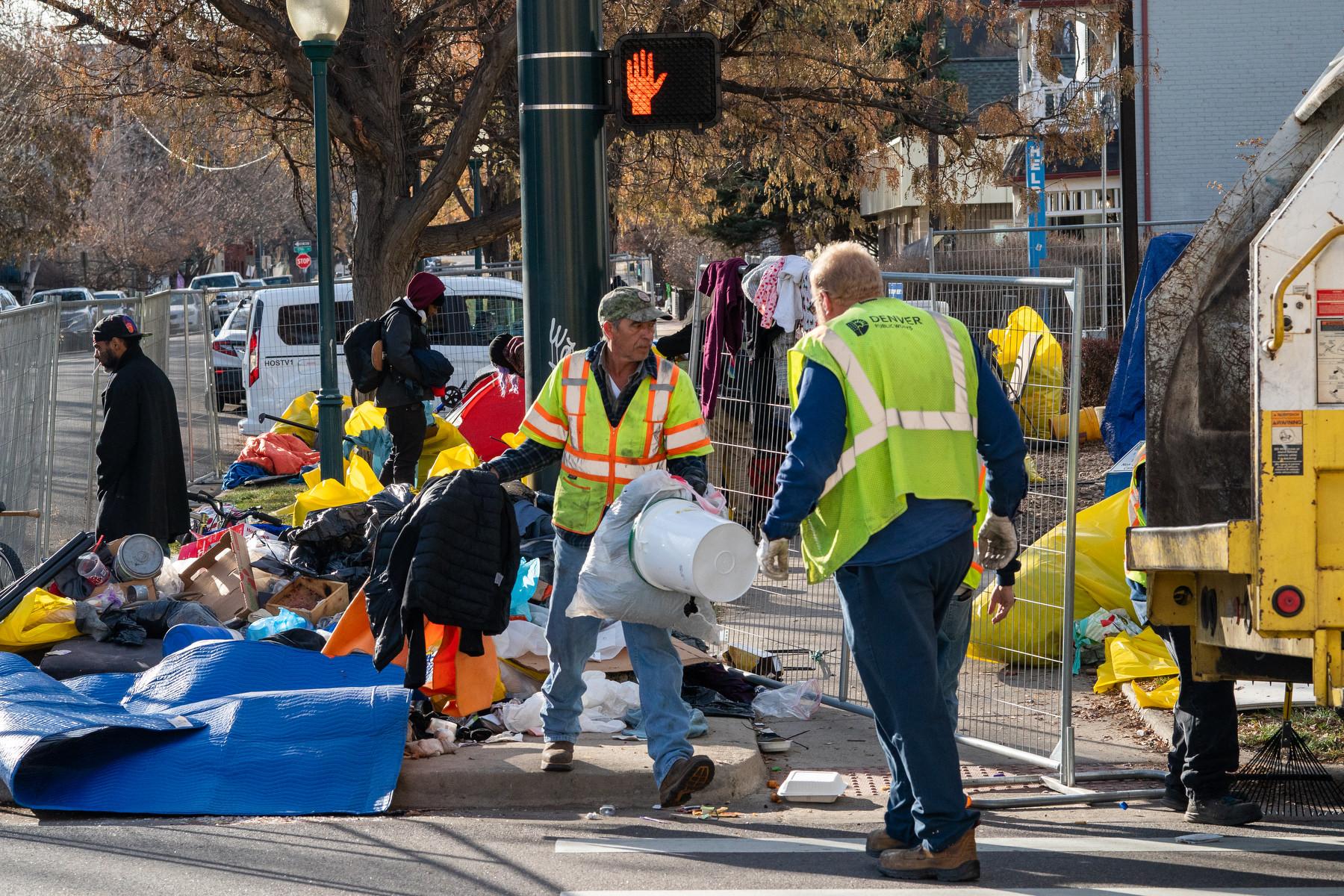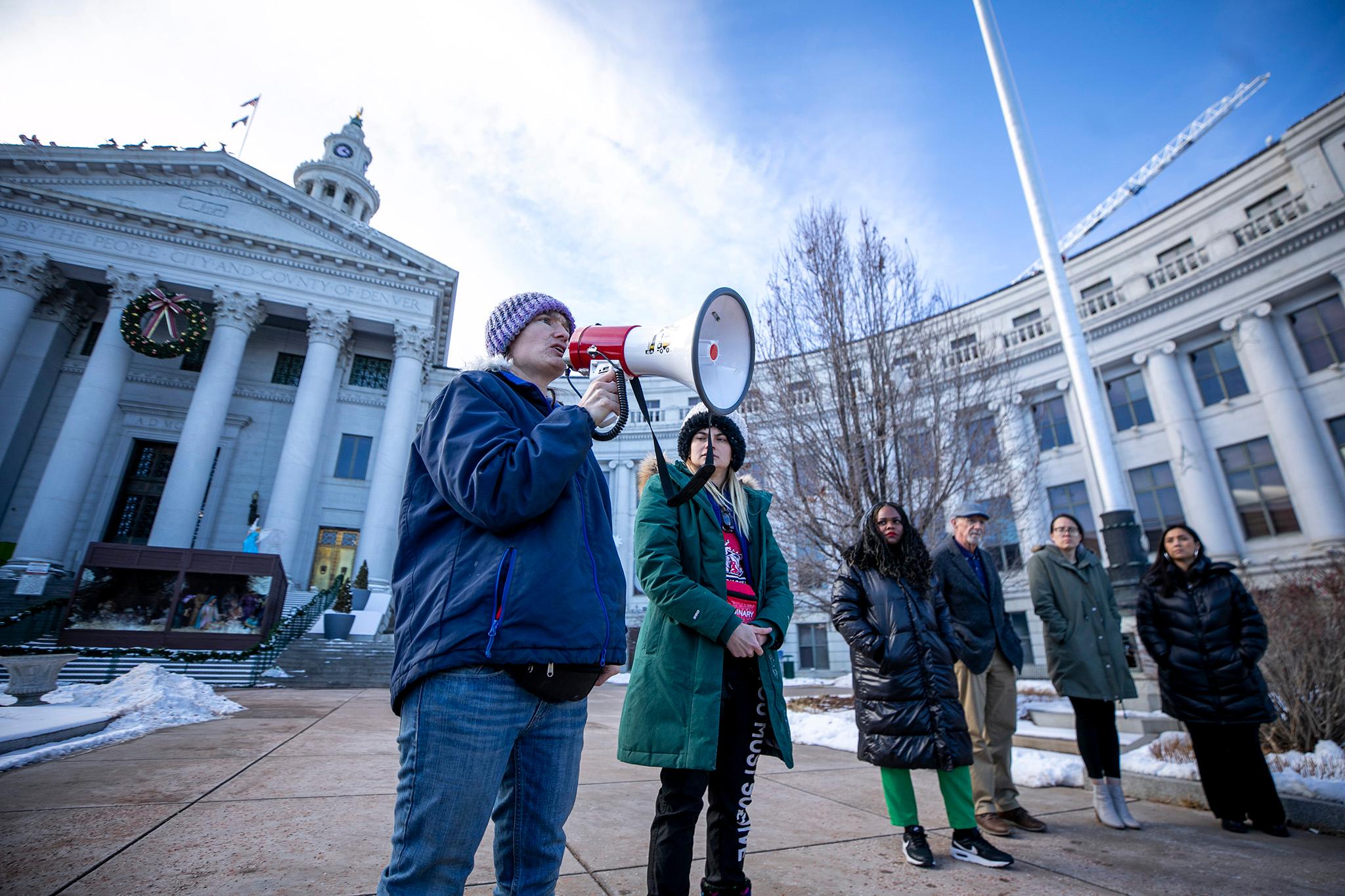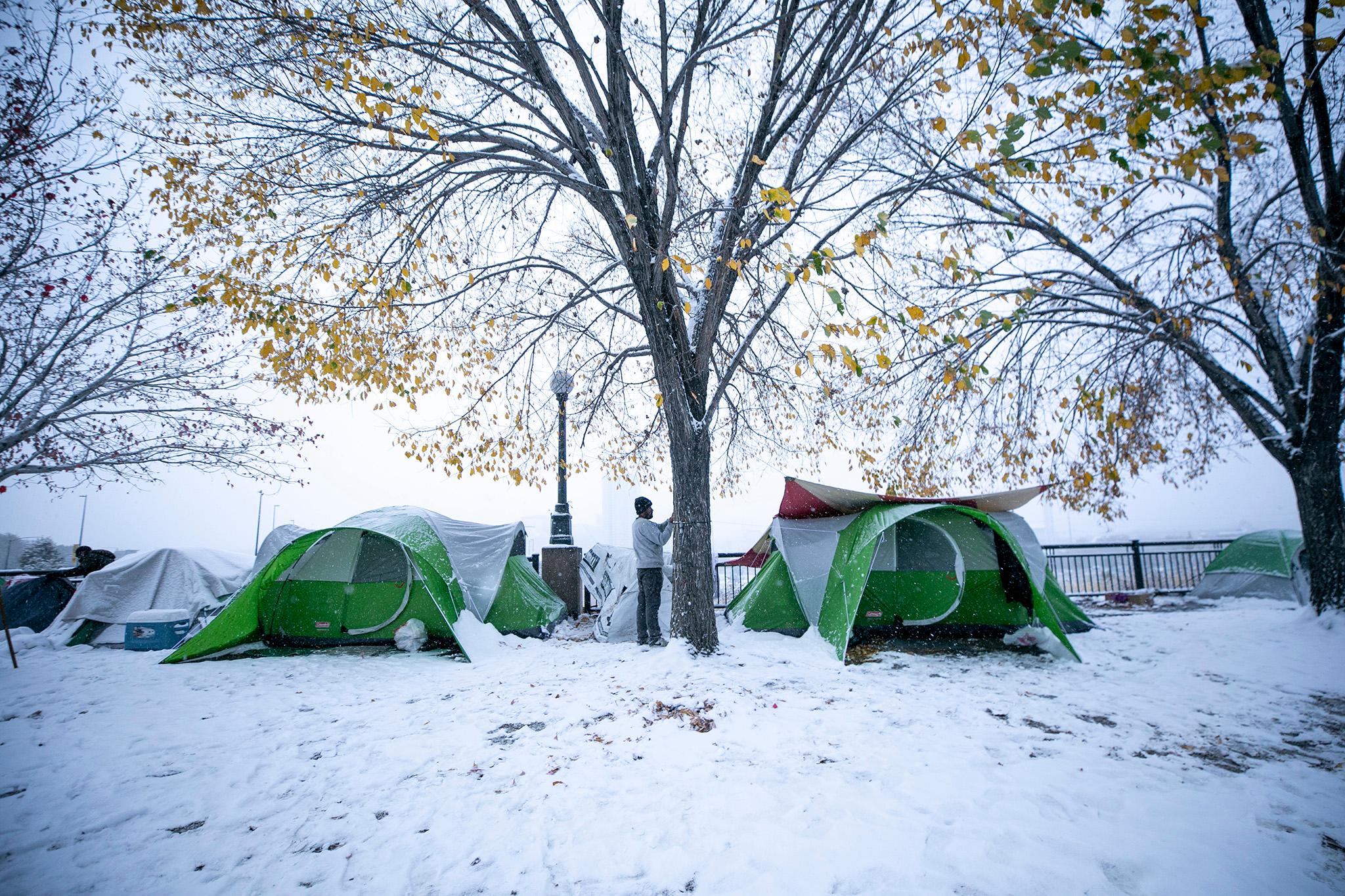City Council voted seven to six Monday on a bill that would stop encampment sweeps during freezing temperatures.
The bill now heads to Mayor Mike Johnston's desk, who has said in the past that he opposed the legislation. If Johnston vetoes the measure, City Council could override him with nine votes - but it's unclear if the sponsors could gain enough support to make that happen.
"We know that cold temperatures pose a serious danger to people living outdoors, and this proposal will limit the actions the city can take to keep people safe. He will make a decision on the bill in the coming days," a spokesperson for Johnston told Denverite in an email.
If the bill ends up becoming law, it would be a win for activists and Councilmembers who have been pushing the city to stop sweeps during days with freezing temperatures temps for years, citing testimonies from people living on the streets and doctors that the risk of frostbite and death rises when people have to relocate in the bitter cold.
"At the end of the day, removing someone's tent when it's freezing out is cruel," said Councilmember Sarah Parady, who co-sponsored the bill with Councilmembers Paul Kashmann, Shontel Lewis and Jamie Torres. "Denver can do better."
But Johnston, along with some Councilmembers and city staff, opposed the bill because it would restrict the city's ability to enforce the voter-approved urban camping ban for roughly a third of the year.
Councilmember Kevin Flynn said he wanted to leave the decision-making power in the hands of city public health staff. He said he worried the legislation would disincentivize people from seeking shelter. He voted no on the bill along with Councilmembers Diana Romero Campbell, Darrell Watson, Flor Alvidrez, Amanda Sawyer and Chris Hinds.
"I believe this will inhibit our ability to maintain public health." Flynn said. "It will lead to more death on the streets."
The measure would prevent the city from clearing most encampments when the weather drops below 32 degrees.
Denver Police would still be able to ask people to move from private property and make arrests for people breaking the law or in cases of trespassing on private property. City staff would still be able to offer people shelter, and the fire department and Denver Health would maintain authority to respond to crises related to encampments. The ordinance only applies to city staff completing sweeps under violations of the urban camping ban.
The bill also gives the head of the Department of Public Health and Environment (DDPHE) jurisdiction to approve a sweep if the encampment posed an imminent threat to human life. But during hearings on the bill city staff said they were not clear on when and how to make that call -- something the sponsors said should be under the director's purview.

Part of the divide over the bill came to who Councilmembers thought should have jurisdiction over making calls about sweeps.
Those in opposition wanted to leave that decision up to city staff, while Councilmembers behind the bill voiced concerns about past decisions and sweeps in freezing weather putting people at risk. Hinds expressed concerns about keeping the right-of-way clear for people with disabilities, and Alvidrez said she worries the bill might lead to more police enforcement of encampments.
"[The bill] by any measurement makes a very complex, very emotional, life impacting process more difficult," said Councilmember Darrell Watson, who voted no. He said he hard from constituents in opposition to the bill, and that the decision should be put up to the voters who upheld the camping ban.
The sponsors said the idea for the legislation came directly from asks from people experiencing homelessness.
"I believe it will save more lives, more fingers and toes," Kashmann said. "There will be some complexities for our agencies... I believe what we gain is far more than what we lose."
Advocates packed City Council chambers in support of the bill.
The ordinance is the result of years of work from activists and Councilmembers in opposition to sweeps, especially during cold temperatures. In December, more than 40 organizations signed a letter in support of the bill.
"The reason that this is such an important topic for me is because I take my friends to their surgery appointments to have their amputations done when they freeze in cold weather and they're swept in cold weather," said Amy Beck, an activist with Housekeys Action Network, at a rally before Monday's City Council meeting. "It's inhumane. It's cruel. We have got to stop sweeping our unhoused community in cold weather."
In requesting support for the bill, Parady listed a number of reasons people might decline indoor shelter even during freezing temperatures, such as lacking a smartphone to find information, being located far from a shelter or refusing to leave behind belongings that could later be swept or thrown away by the city.

Lewis, who co-sponsored the bill, asked councilmembers to remember the people at risk during sweeps, emphasizing that people of color are overrepresented in Denver's homeless population.
"There's kindness and humanity in delaying the relocation by a few days when the temperature is not life threatening," she said. "I just want to ground us in the humanity of the individuals that we're talking about."
Terese Howard, an organizer with Housekeys who has been working on the issue for years, said she was happy the bill passed but anxious about a potential veto.
"[We're] excited about the yes, hopeful for a continued yes, and need to make that message really clear to the Mayor, because the effect of continuing these freezing sweeps is, it's not going to be good," Howard said. "We're going to lose more lives."
Now, bill sponsors await a decision from the mayor's office.
At a February 2023 mayoral forum, then-candidate Johnston, when responding to yes-or-no questions from people experiencing homelessness, said he would stop sweeps during freezing temperatures, though he did not elaborate at the time if City Council would play a role in his decision making.
Johnston pledged to bring 1,000 people indoors by the end of 2023 -- a goal he met by moving people from major downtown encampments into non-congregate shelters. The Department of Public Safety said it plans to increase camping ban enforcement in areas where Johnston "closed" encampments - something that could conflict with the new bill under freezing temperatures.
The co-sponsors of the freezing sweeps bill also proposed a bill that would have raised the temperature threshold to open emergency warming shelters from 20 degrees to 32 degrees. The measure is on hold now as sponsors work with the Mayor's office on a potential pilot program expanding emergency shelters.
This article has been updated with comments from Councilmembers, advocates and more context about concerns raised by opponents of the bill.













